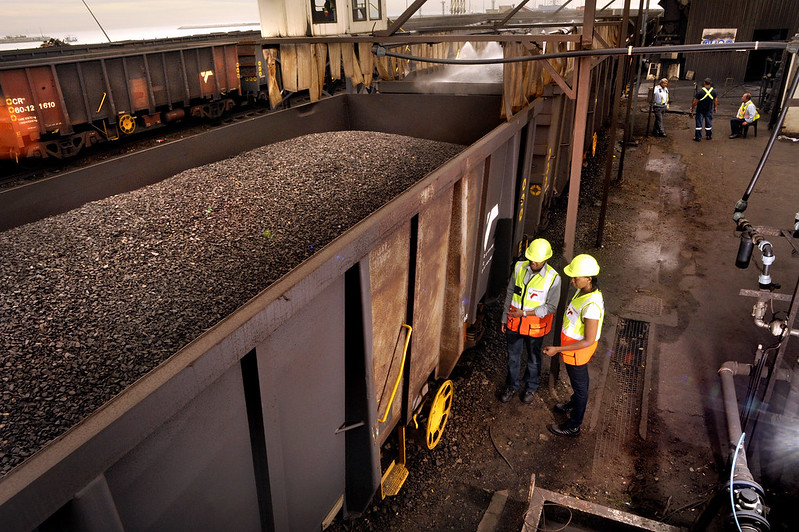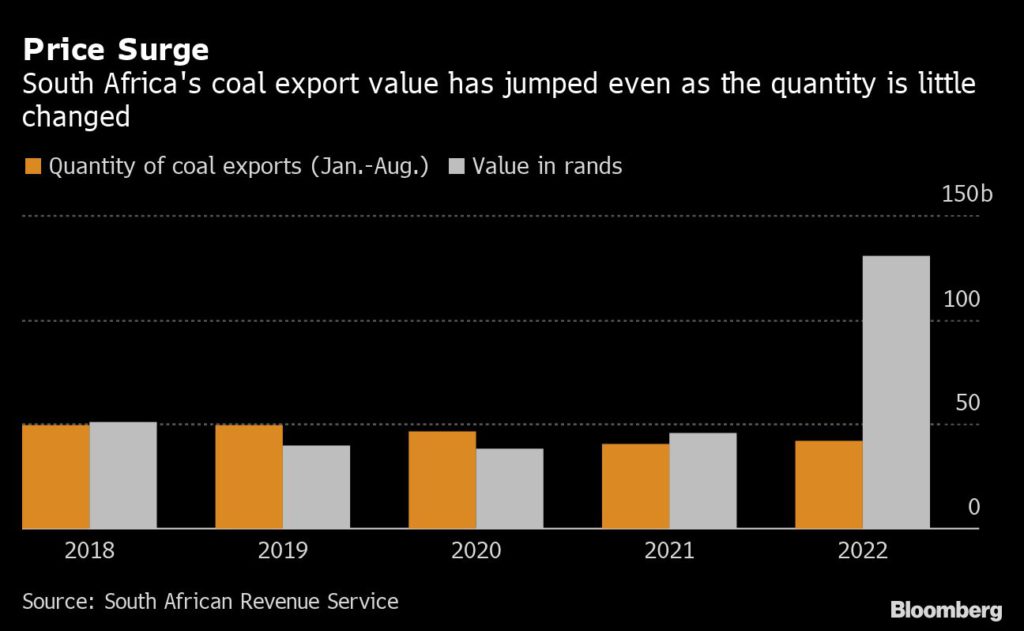Deal with Chinese supplier key for Transnet to haul more coal

South Africa’s freight rail operator is confronting regulatory hurdles that are hindering it from contracting with a Chinese supplier of locomotives and equipment to boost capacity on its lines, its chief executive officer said.
Transnet SOC Ltd. has come under fire from exporters of bulk commodities because it can’t supply them with adequate rail capacity at a time when demand is booming. Thungela Resources Ltd., Exxaro Resources Ltd. and other coal producers have resorted to using trucks to move their produce from vast inland fields in the eastern Mpumalanga province to ports.

While state-owned Transnet reached an in-principle agreement with a local unit of China Railway Rolling Stock Corp. in August, aimed at increasing the number of locomotives on its north and north-east corridors, their dealing have subsequently stalled. That’s because the Chinese company is still negotiating with the South African Revenue Service for clearance to operate and needs to meet the central bank’s foreign exchange requirements, Transnet CEO Portia Derby said.
“As long as we don’t have a normal relationship with them, it creates a constraint with regards to the locomotives that we have available for the system,” Derby said in an interview on Wednesday. While alternative suppliers have been considered, the Chinese firm’s locomotives are ideal for South Africa’s network because they have good traction and can handle steep gradients, she said.
Even before the current impasse, Transnet’s relations with CRCC were strained because the South African company sought to cancel a 54 billion rand deal to buy as many as 1,064 locomotives from the Chinese firm and two other suppliers. CRCC hit back by withholding spare parts, forcing Transnet to withdraw more than 300 locomotives from service.
Transnet reached an in-principle agreement with the CRRC that secured it access to spare parts and equipment currently in the country, but the viability of restoring the idled trains to service still needs to be assessed, Derby said. The CRRC may help with technical expertise once a final accord is reached, she said.
“They’re the only ones who can supply the locomotives, so it’s not like we have an option,” Derby said.
The CEO described Transnet’s battle to stop thieves from stealing copper cables and disrupting the rail network as a tough challenge. Joint operations with mining companies, and the use of drones and helicopters to curb crime were beginning to show results even though there were still a high number of incidents, she said.
“We are throwing security, all kinds of resources at this,” she said. “We are finding out the thieves tend to hit us in areas which cause quite a systematic impact, creating a general blockage.”
(By Felix Njini)
More News
{{ commodity.name }}
{{ post.title }}
{{ post.date }}

Comments